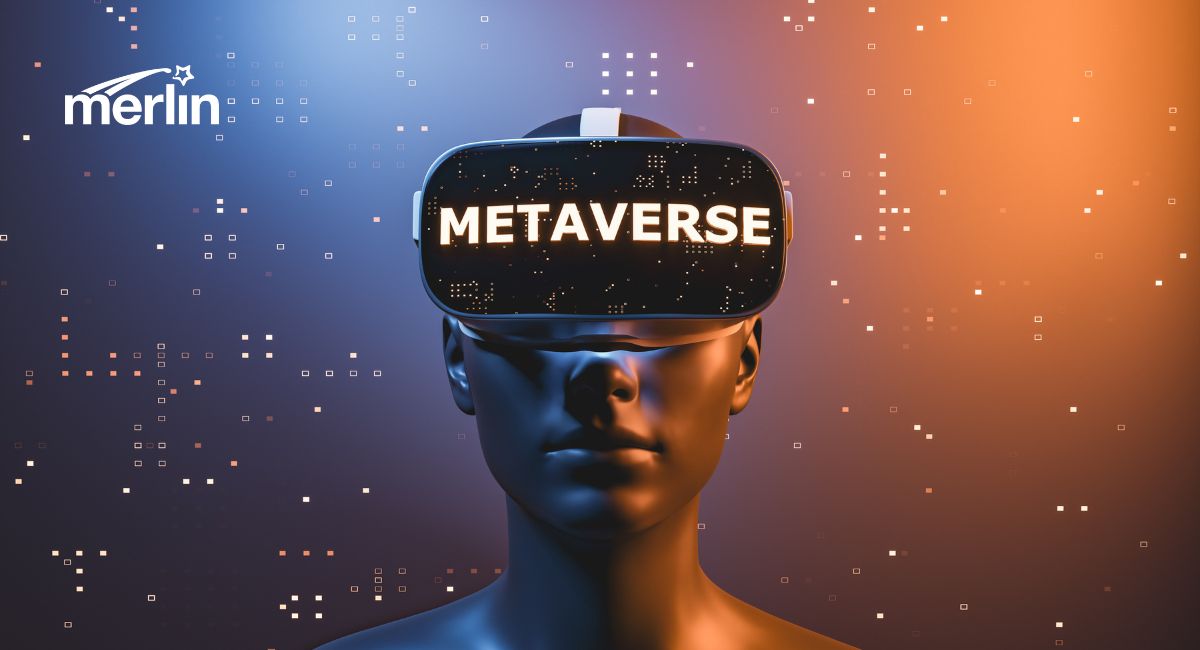
Hospitality and the metaverse
It’s the time of year when we start looking at potential trends for the following year, and the Merlin team expects great things from 2023. One possible trend for the hospitality sector is the metaverse.
Imagine visiting a hotel and having a unique experience without being there in person or attending an event without having to leave your home. Or take vacation ownership tours around your resorts without your clients leaving their sitting rooms. All this is now possible with the metaverse, which is opening opportunities the hospitality sector is struggling to comprehend completely.
The Hotels Network recently chatted with Simone Puorto, futurist and founder of the consulting firm Travel Singularity, to understand this perplexing and bewildering subject. Here are some of the highlights from their discussions.
First, what is the metaverse?
The phrase metaverse is derived from a cyberpunk novel from the 1990s and has strong dystopian elements, which don’t provide the best branding!
The metaverse is best explained as Extended Reality, or if you want to be more academic, you can think of Extended Reality as the gateway to the metaverse.
Virtual reality typically comes to mind when we think of the metaverse, but it is only one aspect of the puzzle and not even the most intriguing one.
What is Extended Reality (XR), then?
XR is a term that combines AR, VR, and MR (mixed reality), and it could be argued that XR applies to all technologically augmented and enhanced worlds. For example, it may take the form of a digital overlay over what we can see and experience in the real world (like a basic Snapchat filter), virtual reality roller coasters, or mobile games like Pokémon GO.
As it’s challenging to come to a consensus on a definition, in Puorto’s opinion, we are in the metaverse whenever we are not interacting with the physical world.
What is hospitality’s experience with the metaverse to date?
Puorto believes there are currently four or five fascinating initiatives in the sector, which will take time to grow.
First, specific infrastructures are required for the metaverse. Unfortunately, these do not exist as yet. Additionally, to have an interoperable metaverse, we will need to use common standards and protocols (probably the most significant barrier to mainstream metaverse adoption).
While the Metaverse Standards Forum is doing a great job, Puorto believes THE metaverse does not yet exist. Instead, there are several walled garden platforms and metaverses. What we are seeing right now is a multiverse, not just the metaverse.
What are the most significant opportunities for hospitality brands and the metaverse?
Is it primarily about improving the user experience or intensifying personalization? Or is it more about the technological advantages or something else entirely?
Puorto believes that the metaverse is evolutionary rather than revolutionary. It will not replace travelling, but it will undoubtedly complement it, especially in the initial, top-funnel touchpoints of the traveller’s experience.
The metaverse might offer a more engaging experience and enable us to immerse in a trip, book a room or apartment or a restaurant table while sitting on our sofa, and finally enjoy the experience in the actual world.
We choose hotels based only on photographs, videos, and reviews. Puorto calls it “travel research on steroids”, as there will never be a website, static picture, or 2D film that can provide a comparable experience.
It advances the idea of “try before you buy” and opens up a new world of marketing opportunities for hotels and resorts. There are countless possibilities, including exploring other worlds, going back in time to visit places that no longer exist on Earth, and travelling underwater – not to mention hybrid conferences and phygital MICE.
Even if in a more diluted form, the metaverse can assist those with limited mobility or hospitalized patients take the vacation of their dreams. Immersive booking engines have the potential to radically transform (for the better) the booking process as we now know it.
And there’s the vast potential for targeted advertising. Most headsets can monitor hand motions and gather information about your surroundings when you’re using virtual reality, including the items you have in your home, the people around you, etc. In 20 minutes of VR, two million pieces of data are collected – that is information marketers can work with.
What is the branding potential for hospitality businesses?
Puorto explains that the metaverse is phygital. You can target customers with a direct-to-Avatar strategy where the digital item or service never leaves the virtual world. ,
You also have access to digital-to-physical (try something before it is delivered to your home or visit an apartment before booking it) or physical-to-digital (purchase a physical asset and receive its digital copy).
The latter is best exemplified by Forever 21, which simultaneously debuts its new collections in immersive and physical stores. Customers frequently transition between the physical and digital worlds before making a purchase.
David Chalmers, a technophilosophist, predicts in his most recent book Reality+ that in a few decades, XR (and consequently, the metaverse) will be so similar to physical reality that making a distinction between the two will be pointless. When examined closely, the reality is a way people agree on something.
How would you advise hospitality teams to proceed?
Puorto believes it’s important not to get carried away just yet. Compared to other sectors like real estate, architecture/engineering, manufacturing, fashion, and gaming, the use of the metaverse in the hotel sector is not as widespread.
Meta-MICE and virtual events are opportunities that can be profitable in the near future.
If you’re considering getting your property in the metaverse, Puorto advises starting with conference rooms and reinvesting profits in long-term initiatives. Additionally, she would recommend purchasing some land right away because ETH is down 56 per cent and “crypto winter” is upon us.
What are your thoughts on the metaverse and your hospitality project? We would love to hear about your experiences.
If the metaverse is of interest, then Simone Puorto has a new metaverse series: Polybius.
Every month, three innovators from the travel and metaverse world will join Simone for a virtual roundtable about topics such as Web3, NFT, crypto, blockchain, DAO, XR, and their current and future applications in our industry. Polybius’ panelists are the very same people reshaping the metaverse economy: academics, researchers, entrepreneurs, and scientists from all over the World united to create the ultimate meta-all-stars-group. You can find out more on HospitalityNet (https://www.hospitalitynet.org/polybius/).
Source: https://blog.thehotelsnetwork.com/metaverse-hotels



